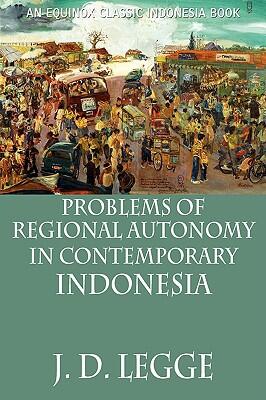
Problems of Regional Autonomy in Contemporary Indonesia
بواسطة
John D. Legge
لا توجد تقييمات بعد
History
تنسيق
غلاف ورقي
صفحات
100
لغة
الإنجليزية
منشور
Apr 6, 2009
الناشر
Equinox Publishing
رقم ISBN-10
6028397091
رقم ISBN-13
9786028397094
الوصف
In this exploration of contemporary Indonesia, the author delves into the intricacies and challenges surrounding regional autonomy within the archipelago. He examines the delicate balance between local governance and central authority, highlighting the historical context that has shaped the current political landscape. With a keen focus on the diverse cultural and socio-economic tapestry of Indonesia, the narrative reveals how regional autonomy has been a double-edged sword, offering both opportunities and conflicts.
The author sheds light on various regions, each bringing its unique set of demands and aspirations, demonstrating the complexities that arise from federal governance. By analyzing case studies and firsthand accounts, Legge illustrates the impact of these issues on local populations, often exploring the tensions and negotiations that ensue when local interests clash with national priorities.
Moreover, the work not only addresses the theoretical frameworks surrounding autonomy but also positions Indonesia within a broader global discussion on self-governance. Through rigorous analysis, the author poses critical questions about the sustainability and efficacy of regional autonomy in fostering development and unity.
Overall, the narrative captures the dynamic interplay between autonomy and national identity, offering insightful perspectives on the future of Indonesia's governance. Engaging and thought-provoking, it invites readers to reflect on what it means to govern in a nation marked by immense diversity and complexity.
The author sheds light on various regions, each bringing its unique set of demands and aspirations, demonstrating the complexities that arise from federal governance. By analyzing case studies and firsthand accounts, Legge illustrates the impact of these issues on local populations, often exploring the tensions and negotiations that ensue when local interests clash with national priorities.
Moreover, the work not only addresses the theoretical frameworks surrounding autonomy but also positions Indonesia within a broader global discussion on self-governance. Through rigorous analysis, the author poses critical questions about the sustainability and efficacy of regional autonomy in fostering development and unity.
Overall, the narrative captures the dynamic interplay between autonomy and national identity, offering insightful perspectives on the future of Indonesia's governance. Engaging and thought-provoking, it invites readers to reflect on what it means to govern in a nation marked by immense diversity and complexity.